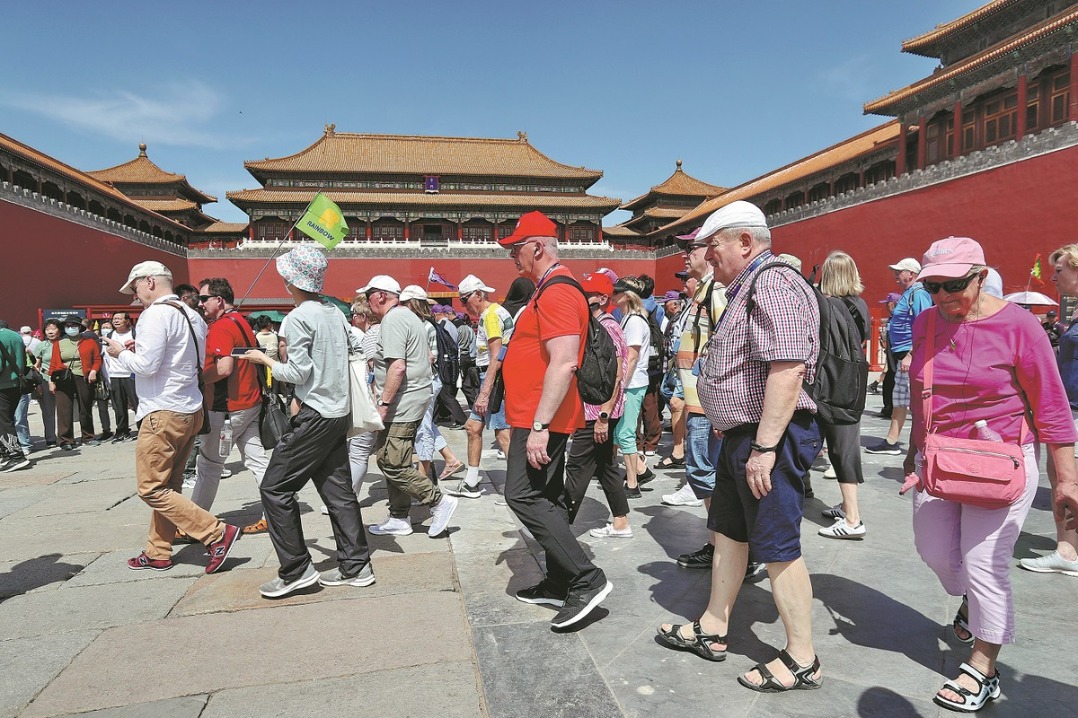Battle for customers drives down UK shop inflation
By Julian Shea in London | China Daily Global | Updated: 2024-04-04 19:37
Competition for customers between retailers has played a big part in shop price inflation in the United Kingdom falling to its lowest level in two years, newly published figures have revealed.
Data from trade body the British Retail Consortium, or BRC, and market research company NielsenIQ, shows that in March prices rose at an annual rate of 1.3 percent, as opposed to 2.5 percent a month earlier, marking the slowest pace since the end of 2021.
Food inflation dropped from 5 percent to 3.7 percent, and non-food inflation plummeted down from 1.3 percent to 0.2 percent, as retailers battled to win over customers who have been spending less due to the cost-of-living crisis, leading to hopes that the worst inflationary chapter the country has seen in 40 years could be moving toward a close.
"While Easter treats were more expensive than in previous years due to high global cocoa and sugar prices, retailers provided cracking deals on popular chocolates, which led to price falls compared to the previous month," said the BRC's chief executive, Helen Dickinson. "Dairy prices also fell on the month as farm gate prices eased, and retailers worked hard to lower prices for many essentials. In non-food, prices of electricals, clothing, and footwear fell as retailers increased promotions to entice consumer spending."
Mike Watkins, head of retailer insight at NielsenIQ, welcomed the news, but said it was unsurprising, given the extremity of previous circumstances.
"A year ago, food inflation was 15 percent, so this was to be expected," he was quoted as saying by The Guardian newspaper. "But it is also helped by intense competition among the supermarkets as they look to drive footfall, with focused price cuts and promotional offers earlier in the month for Mother's Day and now again in the weeks leading up to Easter."
In early 2023, the United Kingdom's Prime Minister Rishi Sunak issued five key policy pledges, with one of them being to halve inflation, which was then at 10.7 percent, saying: "I fully expect you to hold my government and I to account on delivering those goals."
February's overall inflation rate in the UK was 3.4 percent, down from 4 percent the previous month, and gradually moving toward the long-standing Bank of England target of 2 percent.
A survey of economists carried out by the Reuters news agency revealed that inflation is expected to dip below 2 percent in the second and third quarters of the year, which might mean that interest rates could finally be cut.
The current interest rate is 5.25 percent, having risen sharply and continuously since being at 0.1 percent in December 2021, plateauing in recent months, but still remaining at a 16-year high, when it was 5.75 percent in November 2007, shortly before the global financial crisis began.
























